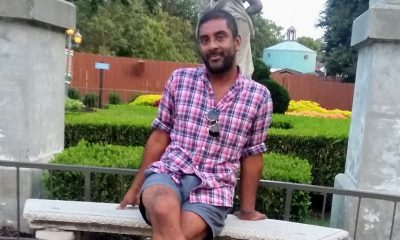Arts & Entertainment
Sue Ellen redux
‘Dallas’ actress on her former co-stars, life after Larry and the hit show’s gay following
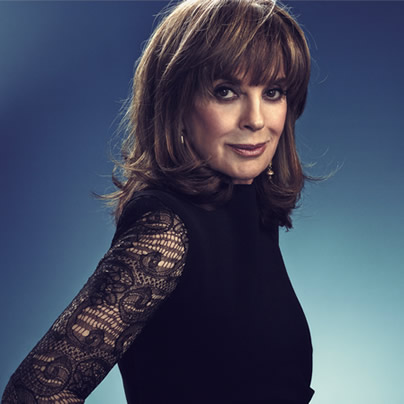
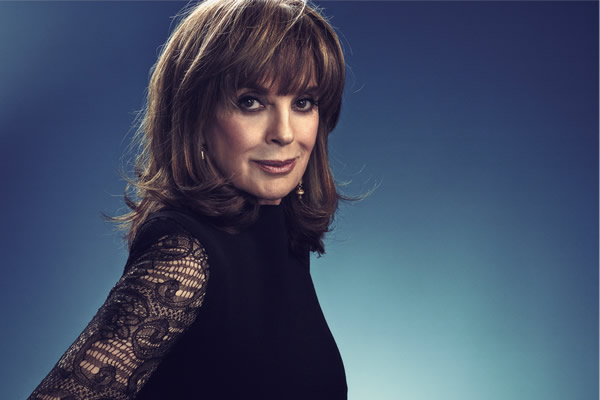
Linda Gray as Sue Ellen on ‘Dallas.’ Gray says it’s been a joy to return to the show 20 years later. (Photo courtesy TNT)
“Dallas,” the reboot of the classic 1978-1991 nighttime soap, returns for its third season Monday night on TNT and promises plenty of fresh backstabbing and intrigue.
John Ross (Josh Henderson) is working to live up to his father’s reputation, Christopher (Jesse Metcalfe) is reeling from a failed engagement and Elena (Jordana Brewster) is consumed with finding the justice that eluded her brother Drew (Kuno Becker) and mother Carmen (Marlene Forte).
It’s a pivotal turning point for the show — this will be its first full season without J.R. as actor Larry Hagman died in November 2012. He was in seven of season two’s 15 episodes and his character’s death was a major storyline last year.
Linda Gray, whose iconic character Sue Ellen has been willing to help her son any way she can on the new show, caught up with the Blade during a break in filming in Dallas two weeks ago, where it was snowing.
WASHINGTON BLADE: Snow is somewhat unusual but not unheard of for Dallas, right?
LINDA GRAY: I know. I’m just in heaven. It’s beautiful.
BLADE: You live in Los Angeles?
GRAY: Yes. I’m in Dallas six months, then L.A. six months. That’s a nice combination.
BLADE: I understand more of the show is filmed on location than was true for the old “Dallas,” right?
GRAY: Yes. We used to come here in the ‘80s for two months and work six days a week, then we went home and did eight-and-a-half months in L.A. So here we do 15 shows and we live here which is really kind of nice. At first we were like, “Oh, we have to move to Dallas?” but it’s quite amazing because then we get to show the audience all the greatness of Dallas. It’s changed so much since the ‘80s.
BLADE: How aware have you been of the show’s gay following? Do you sense it’s any different now than it was on the old show?
GRAY: I’m very aware it has a gay following and I’m beyond thrilled. I have so many, many, many friends who are gay and I adore them. There’s a JR’s and a Sue Ellen’s here, gay bars.
BLADE: We have a JR.’s in D.C., too.
GRAY: Oh, do you really? It’s so fantastic to have the support and we’ve always had it and … it’s been great. We love you right back. Dallas itself has a huge gay community here and they’re very supportive as well.
BLADE: What similarities or differences do you see now in how the show is rebounding dramatically from Larry’s passing versus how the original series dealt with the death of Jim Davis (Ewing family patriarch Jock)? I know it’s not exactly the same thing, but both were huge losses to the shows just a few seasons in.
GRAY: The entire team has changed, the writers, everything has changed and it’s an evolution that is — well, I step back and I look at this 20-year hiatus and it’s very bizarre to come back and do it again, but in such a good way. So now I think the approach is kind of like we’re outsiders looking in and seeing how the Ewings have evolved. And now without Larry, that threw everybody a curve and those wonderful writers — I always applaud the writers because without them and their great brains and their minds that kind of go off in wonderful directions, there would be no show. They had last season already approved by the networks and when Larry passed, they had to scramble and again, I applaud them because they did a magical shuffling around to kind of piece this together and still be an interesting, entertaining show without the key, which was huge — J.R. Ewing and Larry Hagman, I mean you know that was a huge void for me personally and I’m sure for everybody in the audience, it’s huge. So I look at it as an observer and say, “Wow, what a great job they’ve done.” They have to handle everything as it comes, as we all do in life. You don’t expect this to happen, but it did and now what are you going to do with it? When Jim Davis died, the producers were great. They moved his dressing room right on the soundstage because just like Larry, he wanted to die doing what he loved. They didn’t say, “No, you’re going into hospice or something,” they moved his dressing room right on the soundstage so we would do a scene and come in and hang out with Jim. When you’re doing a series, you’re so bonded as a family. You step in there and you’re supportive and you send them love. I would say “Dallas” has been blessed with a little bit of fairy dust that has been scattered on us from day one. The cast was wonderful, the writers were great, et cetera, and now it’s happening again and since I was one of the originals, it’s amazing to see how similar it is.
BLADE: You worked with Barbara Bel Geddes (Miss Ellie) for many years. After she left before the last season, she never appeared in any final episode, TV movies, cast reunions or anything. What would she think of this new series? (Bel Geddes died in 2005.)
GRAY: She was a savvy, bawdy broad, is what I called her, and I would call it to her face. We were so close. I’d call her Mama, on and off camera. She was this crusty New England broad. She was feisty and fabulous and such a huge classy addition to the Ewing family. I really was so shocked when I knew she was doing a series because I thought Barbara Bel Geddes, you know she worked with Tennessee Williams and Alfred Hitchcock. She was so classy and so when I first walked into the room, I’ll never forget it. I saw Major Nelson — Larry Hagman. I saw Patrick Duffy — “Man From Atlantis.” And then I saw Barbara Bel Geddes and I thought, “What’s wrong with this picture? Is this a sitcom? What is this show?” Internally I started laughing because I thought what is this? … But I just watched this magical thing happen and, you know, the Ewings became bigger than life. So for me it was great to work with her. She was astounding, she was quiet, she would make great funny little remarks during the rehearsals and then when you had a scene with her, man, you better be on your toes. You better bring your A game because she could bury you with a look. She was to me the same caliber as my two favorites — Judi Dench and Maggie Smith. There was no nonsense with her. It was just, “I’m here to work, I know what I’m doing, I’m a professional, I’m Broadway trained, I’m theater trained, I’ve worked with the best so don’t mess around with me.”
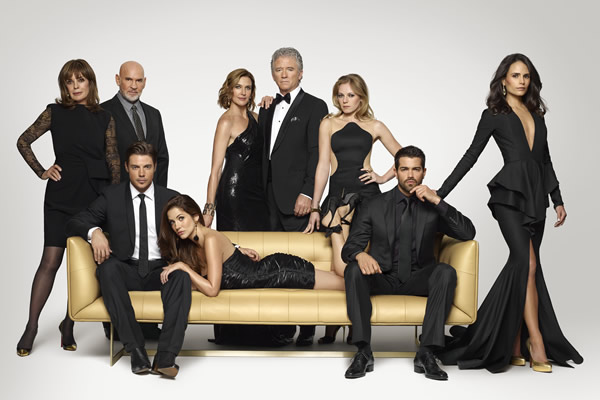
The cast of ‘Dallas.’ The reboot of the classic series returns Monday night. (Photo courtesy TNT)
BLADE: But what would her reaction be to this new series?
GRAY: I think she’d probably sit down with a glass of Scotch in her condominium and probably just laugh her ass off. She’d probably roll her eyes, going “How are we back again” and “Look at that younger generation.” But she would be a hoot. I think she would love the new show, love the kids, complain about everything — she loved to complain. She’d complain it was too hot, or, “What the hell are we doing, it’s snowing today,” or “What am I doing in Dallas,” blah blah blah blah blah. Yet the bottom line, she would love it.
BLADE: Victoria Principal has been a little different — she’s said she’s against reviving Pam in any kind of dramatic way, yet has joined up a few times in a non-dramatic capacity like the Vanity Fair photo (1995) and the 2004 reunion special. Over the years do you feel the rest of the cast has respected her wishes not to revive Pam or do you think there’s been some arm twisting to have her join in more often?
GRAY: I think we all respect her. I don’t think she wanted to come back and I don’t even know if the producers went after her or tried really pursuing her, I really don’t know. When you’re asked to come back, your gears are in different motion. You’re in forward motion. You’re thinking, “OK, gotta get to Dallas,” and you don’t really say, “Why isn’t so-and-so here?” For each person, it’s their choice and her choice was not to be in it so you respect everybody’s choice. We don’t see her very often. She was never kind of with us, you know, she was never — Larry, Patrick (Duffy) and I were very close and I was very close with Barbara and she just chose not to be as inclusive. I don’t mean that to — she just didn’t hang out with us.
BLADE: Any chance we might be seeing more of Lucy (Charlene Tilton)?
GRAY: Those are great questions but I don’t know the answers. The producers and writers, they write the scripts and if Lucy comes back, great, Ray Krebbs comes back, Steve (Kanaly) it’s always great to see him and it’s always fun to see them all. I do see Charlene in Los Angeles. She lives near my children. You know, it’s this great family, but since they’ve added all the young new people, it’s crowded. How many people can you bring back? It is fun for the audience when you see Charlene (Lucy), Steve (Ray Krebbs) and Kenny (Cliff Barnes), but it’s more a question for the producers.
BLADE: Larry was so anti-smoking yet Barbara smoked a lot. Did they ever clash over that on set?
GRAY: No, she would just tell him to get lost or, you know, just dismiss him. I think she smoked more in private. I never saw her smoke on the set.
BLADE: Now that it’s so many years later, do you feel the dream season was a good idea? People seem divided on whether it was clever or a jump-the-shark moment.
GRAY: Well, I don’t think people know all the dealings of how it really came about. Larry called Patrick and said, “I want you back.” He felt J.R. needed that brother, the good guy-bad guy kind of thing. I remember he called Patrick and Patrick knew when he got that phone call, what Larry was going to propose. He knew that intuitively. So he went over to his house in Malibu and they had a glass of Champagne and they may have gotten in the Jacuzzi, I don’t really know what happened there, but he talked Patrick into coming back so it was up to the producers to bring Patrick back and that was not an easy task to come up with. You know up front, no matter what they did, they would be criticized. … That was one of the things about “Dallas” that was exciting was that people would talk about it the next day. Did you like this? Look at Sue Ellen’s hair. Did you hate this? What about Bobby? What about J.R. drinking? Whatever. He’d call it water cooler chat. Whether you liked it or not, we knew it was going to cause chaos. So they had the idea for him to do the fake Irish Spring soap commercial where they edited out everything but him saying, “Good morning.” … A lot of people hated it and just stopped watching the show, they said it was ridiculous. A lot of people thought it was funny. A lot of people went, “Wow, that was a great dream sequence.” So no matter how you felt, good, bad or indifferent, they needed him back and they accomplished that.
BLADE: You look great but still look like yourself. What’s your skin care regimen?
GRAY: You’re sweet, thanks. When my peers no longer look like themselves, it scares me. There’s not a secret, I swear. I have a great skin care regimen. I never sleep with makeup on, I drink a lot of water. Hydration is huge. I eat great. I cook most of my own meals. A lot of green stuff — we’re from California, remember. And that’s it. You know, a good attitude goes a long way. And I exercise. I do all the things we’re supposed to do. Sometimes I don’t want to. I don’t want to get up early and go to the gym, but I do. I think complexion is more important than pulling and cutting your face. I’d rather have a good glowy complexion, so I use good skin care products and I use them twice a day. It’s like brushing your teeth. There’s no big secret.
BLADE: Could you ever imagine a gay wedding at Southfork?
GRAY: Sure! Why not?
Nightlife
Ed Bailey brings Secret Garden to Project GLOW festival
An LGBTQ-inclusive dance space at RFK this weekend

When does a garden GLOW? When it’s run by famed local gay DJ Ed Bailey.
This weekend, music festival Project GLOW at RFK Festival Grounds will feature Bailey’s brainchild the Secret Garden, a unique space just for the LGBTQ community that he launched in 2023.
While Project GLOW, running April 27-28, is a stage for massive electronic DJ sets in a large outdoor space, Secret Garden is more intimate, though no less adrenaline-forward. He’s bringing the nightclub to the festival. The garden is a dance area that complements the larger stages, but also stands on its own as a draw for festival-goers. Its focus is on DJs that have a presence and following in the LGBTQ audience world.
“The Secret Garden is a showcase for what LGBTQ nightlife, and nightclubs in general, are all about,” he says. “True club DJs playing club music for people that want to dance in a fun environment that is high energy and low stress. It’s the cool party inside the bigger party.”
Project GLOW launched in 2022. Bailey connected with the operators after the first event, and they discussed Bailey curating his own space for 2023. “They were very clear that they wanted me to lean into the vibrant LGBTQ nightlife of D.C. and allow that community to be very visibly a part of this area.”
Last year, club icon Kevin Aviance headlined the Secret Garden. The GLOW festival organizers loved the its energy from last year, and so asked Bailey to bring it back again, with an entire year to plan.
This year, Bailey says, he is “bringing in more D.C. nightlife legends.” Among those are DJ Sedrick, “a DJ and entertainer legend. He was a pivotal part of Tracks nightclub and is such a dynamic force of entertainment,” says Bailey. “I am excited for a whole new audience to be able to experience his very special brand of DJing!”
Also, this year brings in Illustrious Blacks, a worldwide DJ duo with roots in D.C.; and “house music legends” DJs Derrick Carter and DJ Spen.
Bailey is focusing on D.C.’s local talent, with a lineup including Diyanna Monet, Strikestone!, Dvonne, Baronhawk Poitier, THABLACKGOD, Get Face, Franxx, Baby Weight, and Flower Factory DJs KS, Joann Fabrixx, and PWRPUFF.
Secret Garden also brings in performers who meld music with dance, theater, and audience interactions for a multi-sensory experience.
Bailey is an owner of Trade and Number Nine, and was previously an owner of Town Danceboutique. Over the last 35 years, Bailey owned and operated more than 10 bars and clubs in D.C. He has an impressive resume, too. Since starting in 1987, he’s DJ’d across the world for parties and nightclubs large and intimate. He says that he opened “in concert for Kylie Minogue, DJed with Junior Vasquez, played giant 10,000-person events, and small underground parties.” He’s also held residencies at clubs in Atlanta, Miami, and here in D.C. at Tracks, Nation, and Town.
With Secret Garden, Bailey and GLOW aim to bring queer performers into the space not just for LGBTQ audiences, but for the entire music community to meet, learn about, and enjoy. While they might enjoy fandom among queer nightlife, this Garden is a platform for them to meet the entirety of GLOW festival goers.
Weekend-long Project GLOW brings in headliners and artists from EDM and electronic music, with big names like ILLENIUM, Zedd, and Rezz. In all, more than 50 artists will take the three stages at the third edition of Project GLOW, presented by Insomniac (Electric Daisy Carnival) and Club Glow (Echostage, Soundcheck).
Out & About
Washington Improv Theatre hosts ‘The Queeries’
Event to celebrate queer DMV talent and pop culture camp

The Washington Improv Theatre, along with the Mayor’s Office of LGBTQ Affairs and the Gay Men’s Chorus of Washington DC, will team up to host “The Queeries!” on Friday, April 26 at 9:30 p.m. at Studio Theatre.
The event will celebrate Queer DMV talent and pop culture camp. With a mixture of audience-submitted nominations and blatantly undemocratically declared winners, “The Queeries!” mimics LGBTQ life itself: unfair, but far more fun than the alternative.
The event will be co-hosted by Birdie and Butchie, who have invited some of their favorite bent winos, D.C. “D-listers,” former Senate staffers, and other stars to sashay down the lavender carpet for the selfie-strewn party of the year.
Tickets are just $15 and can be purchased on WITV’s website.
Out & About
Drag Underground returns
Indiana Bones, Bombalicious Eklaver, Shi-Queeta Lee, Cake Pop! to perform
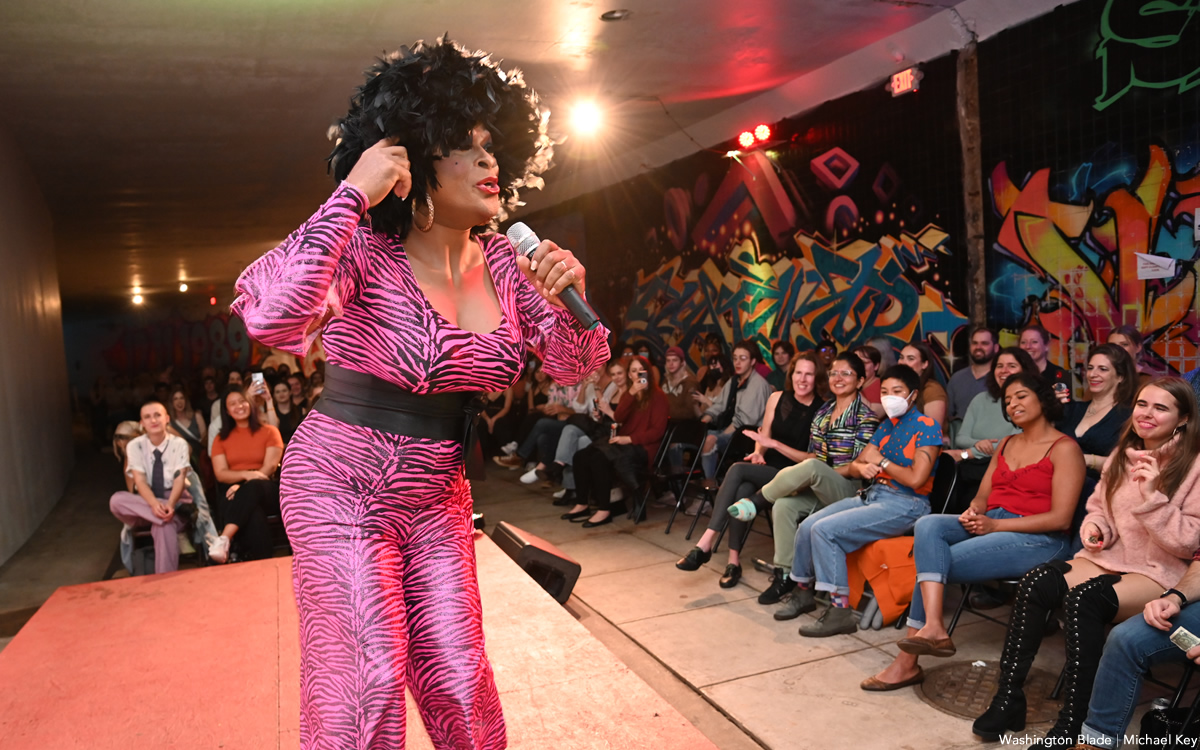
Dupont Underground and the Washington Blade have teamed up to host “Drag Underground” on Friday, April 26 at 7:30 p.m. at Dupont Underground.
Performers include Indiana Bones, Bombalicious Eklaver, Shi-Queeta Lee and Cake Pop.
Tickets start at $15 and can be purchased on Eventbrite.
-

 State Department3 days ago
State Department3 days agoState Department releases annual human rights report
-

 Maryland5 days ago
Maryland5 days agoJoe Vogel campaign holds ‘Big Gay Canvass Kickoff’
-

 District of Columbia1 day ago
District of Columbia1 day agoCatching up with the asexuals and aromantics of D.C.
-

 Politics4 days ago
Politics4 days agoSmithsonian staff concerned about future of LGBTQ programming amid GOP scrutiny





